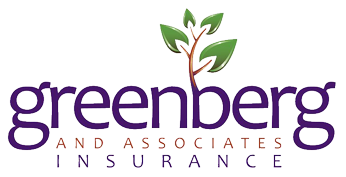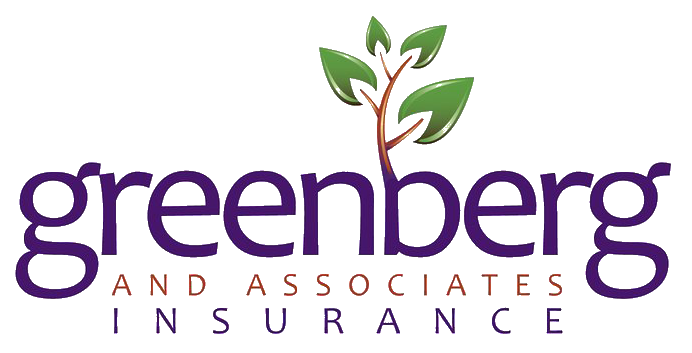Large Group Employer Reform Bulletin
2013 March 19 – Large Group Employer Reform Bulletin
* * * IMPORTANT BULLETIN * * *
TO: ALL LARGE GROUP HEALTH CLIENTS
FROM: GREENBERG & ASSOCIATES INSURANCE, LLC.
DATE: MARCH 19, 2013
RE: PATIENT PROTECTION AND AFFORDABLE CARE ACT UPDATES
We’d like to keep you abreast of several updates regarding the Patient Protection and Affordable Care Act (PPCA) that have come out lately. But, before we go into newly released guidance and reform rules, we’d like to reiterate previously communicated provisions that there is still some confusion on as follows:
- W-2 reporting of the aggregate cost of employer sponsored healthcare coverage for the 2012 Tax Year, is ONLY required for employers who issue more than 250 W-2’s. It is “optional” for those employers who file fewer than 250 W-2’s until further guidance is issued by the IRS.
- The required Employer Notice to employees informing them of the Health Insurance Exchange has been delayed until further notice. Most likely additional guidance will come this fall. The DOL in a recent FAQ noted that Employers will be provided generic model notices.
On January 24, 2013 the Departments of Labor (DOL) issued guidance regarding HRAs (which includes MERPs) that strictly forbids the use of HRA’s from assisting employees in the purchase of individual medical plans. The DOL also specifically stated that an employer-sponsored HRA may be treated as “integrated” with other medical coverage ONLY if the employee receiving HRA funds is actually enrolled in the group health plan. Therefore, this guidance clarifies that the contributions to HRAs (and MERPs) can be taken into account in the minimum coverage value calculations! Upon renewal all plans will need to meet minimum value standards. Therefore, this is good news. DOL also confirmed that integrated HRAs are not subject to the prohibition on annual and lifetime dollar limits, as long as the integrated health plan is compliant. Therefore, it appears at this time that the use of HRAs and MERPs as a tool to lower insurance premiums will be allowed to continue.
On February 20, 2013, HHS issued final rules for Essential Health Benefits (EHB), Actuarial Values for coverage levels and minimum coverage levels. Only non-grandfathered insured individual and small group plans IN and OUT of Exchanges are required to provide EHB. While large groups will not be required to cover EHBs, if they do decide to cover them, the annual and lifetime dollar limits will be eliminated for those benefits. The final rules outline details for determining Actuarial Value (AV), Employer Mandated Minimum Value (MV), Preventive care, and cost sharing requirements. HHS requires use of an AV calculator for plans offered in the individual and small group markets both in and out of the Exchange to determine the health plan’s level of coverage and if plans meet minimum coverage levels. The MV calculator will be used to evaluate whether a large group employer sponsored plan provides minimum required values. The final rules included a list of Preventive care FAQ’s to clarify many previously confusing scenarios such as what happens when a polyp is discovered during a routine screening colonoscopy? The answer is; the plans cannot impose cost sharing for the cost of the polyp removal. Conversely, it clarified that plans do not have to cover contraception and vasectomies for men.
Upon renewal in 2014, non-grandfathered large group member cost sharing on any health plan can be no greater than those in a health savings account (HSA). The current $6,250 individual out-of-pocket limit is indexed annually and is estimated to be $6,645 in 2014. Family limits will be double the individual out-of-pocket limit. These limits will not apply to out-of-network services. In addition, the hourly minimum that employees must work each week to be eligible for group health insurance will be set at 30 hours to avoid facing penalties. Also, employers will be prohibited from providing better eligibility, health benefits, or employer contributions to highly compensated individuals or waiving eligibility for key employees. The DOL has indicated they may impose fines of up to $100/day for each employee discriminated against due to these rules.
We will be evaluating each large employer group based on the updated rules and guidance pertaining to the Actuarial Value and Employer Mandated Minimum Values to be sure existing plans currently meet specific minimum thresholds as well as reviewing contribution levels to assess whether we foresee employee contributions will exceed the 9.5% household income threshold. These coverage and cost thresholds are important due to the fact that if you don’t meet these standards, employees can seek subsidized healthcare through the Exchange which in turn triggers a penalty back to the employer.
We have also received several updates from various insurance carrier sources about the various fees that PPACA imposes that we’d like to outline for you since these will certainly be included in the cost of your insurance premiums and will have the net effect of initially pushing premiums up. Following are the three reform specific fees that you may have heard about:
PATIENT CENTERED OUTCOMES RESEARCH INSTITUTE (PCORI) FEE
This fee will fund research to evaluate and compare health outcomes, clinical effectiveness, risks and benefits of medical treatments and services. The fees originated with plan years ending October, 2012. Both fully insured and self-funded plans must pay $1 per covered member during the first plan year. The fee increases to $2 per covered member in the second plan year. Adjustments thereafter will be based on the percentage increase in the projected per capita amount of national health expenditures. Self-insured clients must file federal excise Form 720 and pay the research fee directly to the IRS. Under IRS rules, third parties may not pay the research fee or file Form 720 on behalf of a self-insured plan. We recommend that you consult your tax advisor if you have questions about filing the excise tax returns. Fully insured plans which are also subject to the fee will not be responsible for filing Form 720. The fee will be rolled into their premium rates and the TPA or ASO carrier will be responsible for filing Form 720.
TRANSITIONAL REINSURANCE FEE
This fee also impacts both fully insured and self-funded plans. The fee is collected from the health insurers and TPA’s or ASO carrier on behalf of the their clients. The fee for 2014 is $63 per covered individual. The collected fees will be distributed to insurers in the non-grandfathered individual market that are expected to disproportionately attract high risk individuals. The Transitional Reinsurance Program is intended to help spread the finacial risk across all health insurers to provide greater financial stability for the transition to a guaranteed issue (i.e. no health underwriting) individual marketplace. The reinsurance program will exist from 2014 through 2016.
THE HEALTH INSURANCE INDUSTRY FEE/HEALTH INSURANCE TAX (HIT)
This fee is also referred to as a premium tax and impacts fully insured plans only! It is a permanent annual fee on health insurance providers effective starting January 1, 2014. The fee will fund premium tax subsidies for individuals and families with household incomes between 100 and 400% of the Federal Poverty Level who purchase insurance through the Health Insurance Exchanges. The amount of the insurer fee will be determined by the market share of the provider’s net written health insurance premiums in the previous plan year. Final guidance has not yet been issued, but, it is estimated the fee will be approximately 2 to 2.3% of premium in the first year. The fee also applies to stand alone dental and vision plans. Non-Profit health plans will receive a 50% reduction to their portion of the fee.
Clearly these additional fees will have an impact on all health plans. Therefore, look for more clarification on how they will specifically impact your group rates going forward. It looks like some carriers will be line-itemizing these fees and others will be including them in the premiums without dividing them out from other factors.
At this time, we are taking all of the necessary steps to continue to provide the level of expertise and service that you can depend upon to assist you through all of the upcoming changes. In the meantime, please don’t hesitate to let us know if you have any questions.
Sincerely,
Sharon Greenberg & Adrienne Hutchins
3439 NE Sandy Blvd. #378, Portland, OR 97232 / 503-297-8078 / 503-297-8094 (Fax)

